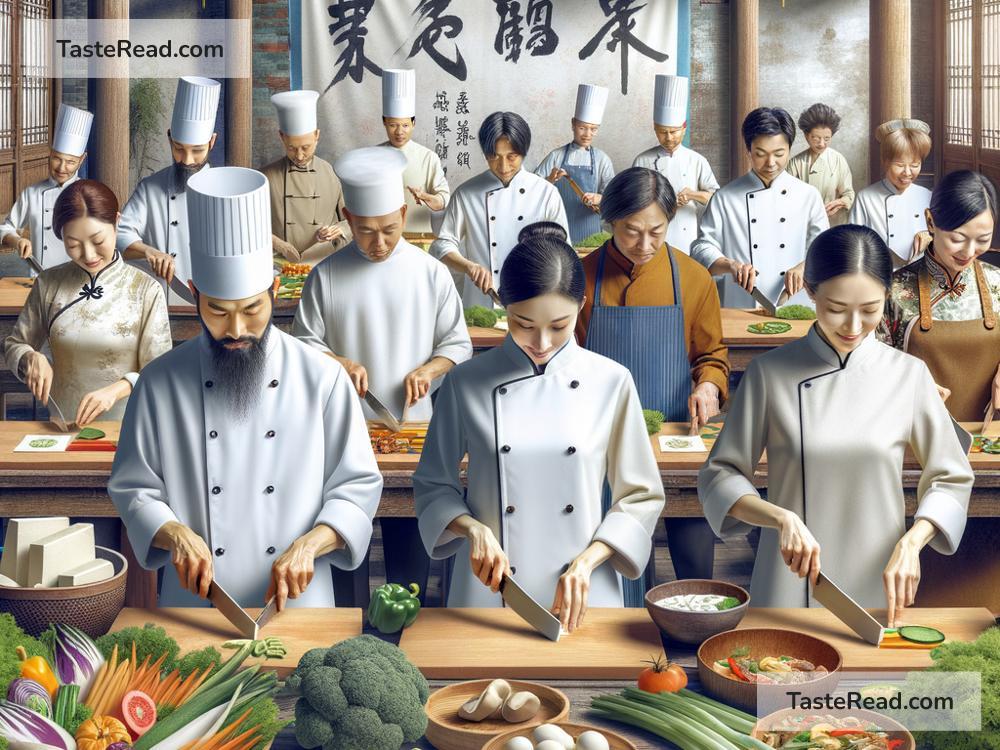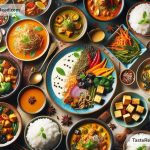The Influence of Buddhist Vegetarianism on Chinese Cuisine
In the vast tapestry of culinary traditions around the world, few have been as influential and distinctive as Chinese cuisine. Known for its rich flavors, diverse ingredients, and colorful presentations, Chinese food has captured the taste buds of billions. But amidst the sizzle of stir-fries and the heartiness of its meat dishes lies an often-overlooked influence that has deeply molded Chinese cuisine: Buddhist vegetarianism.
Buddhism arrived in China around the 1st century AD and brought with it a set of dietary laws fundamentally based on non-violence and compassion. Central to these laws is the avoidance of killing, leading many Buddhists to adopt a vegetarian diet to minimize harm to living beings. Over centuries, this practice has not only shaped the spiritual landscape of China but has also left an indelible mark on its culinary culture.
The Roots of Buddhist Vegetarianism
At the heart of Buddhist vegetarianism is the concept of “ahimsa,” or non-violence. For Buddhists, causing harm to another being taints the individual with negative karma, which they believe affects one’s rebirth and path to enlightenment. Thus, vegetarianism isn’t just about diet; it’s a spiritual and ethical practice meant to cultivate compassion and mindfulness.
As Buddhism spread in China, it interacted with Daoism and Confucianism, which also emphasize harmony with nature and ethical living. This cultural fusion laid the groundwork for vegetarianism to become more than just a religious practice—it became part of China’s broader philosophical and culinary landscape.
The Culinary Influence
Buddhist vegetarian cuisine, known as “zhai cai” in Chinese, has had a profound impact on what many recognize today as Chinese food. This can be seen in several ways:
-
Ingredients: The need to create fulfilling and nutritious meals without meat led to an innovative use of ingredients like tofu, seitan (wheat gluten), mushrooms, bamboo shoots, and a variety of beans and legumes. These ingredients have become staples in Chinese cooking, celebrated for their ability to absorb flavors and mimic the texture of meat.
-
Cooking Techniques: Buddhist chefs have mastered the art of transforming simple vegetables and grains into delicious, complex dishes. Techniques such as braising, steaming, and stir-frying, which are now synonymous with Chinese cuisine, were developed in part through vegetarian cooking.
-
Mock meats: One of the most fascinating contributions of Buddhist cuisine to Chinese food is the development of mock meats. Centuries before plant-based diets gained their current popularity in the West, Buddhist chefs were creating remarkably meat-like dishes from vegetarian ingredients. These innovations not only allowed adherents to adhere to vegetarian diets but also introduced a culinary creativity that has enriched Chinese cuisine.
The Cultural Impact
Beyond the kitchen, the influence of Buddhist vegetarianism extends to how food is perceived culturally in China. Vegetarian festivals and restaurants are common, especially near temples, and vegetarian dishes are integral to important Buddhist festivals and ceremonies. The philosophy of eating with mindfulness and respect for life has resonated with many, leading to a greater appreciation for the natural world and its resources.
Moreover, the rise of vegetarianism and veganism globally has brought renewed attention to China’s rich tradition of plant-based cooking. As environmental and health concerns prompt more people to explore vegetarian diets, many are discovering the depth and variety of flavors in Buddhist cuisine, furthering its influence.
The Future of Chinese Cuisine
As the world becomes more interconnected, the exchange of culinary traditions serves as a bridge between cultures, and Buddhist vegetarianism continues to play a pivotal role in this exchange. China’s long history of vegetarian cooking offers both a treasure trove of recipes and a philosophical approach to food that emphasizes harmony, health, and compassion.
In looking at the influence of Buddhist vegetarianism on Chinese cuisine, it’s clear that it is not simply a matter of dietary preference or religious practice. Instead, it’s a testament to the power of food to shape culture, foster innovation, and create a shared understanding of respect for all life. As we move forward, the principles behind Buddhist cuisine—mindfulness, compassion, and sustainability—offer valuable lessons for how we approach food in a rapidly changing world.
In essence, Buddhist vegetarianism is more than just an influence on Chinese cuisine; it is a vibrant strand woven into the very fabric of China’s culinary and cultural identity, continuing to inspire and evolve with each generation.


